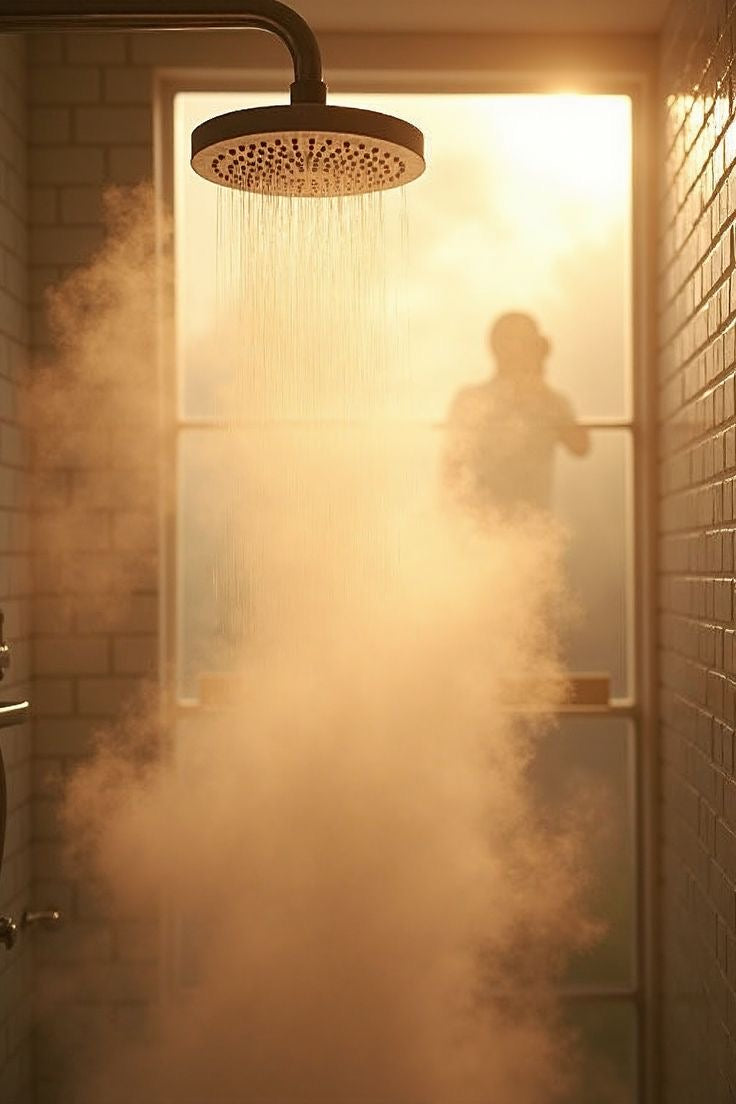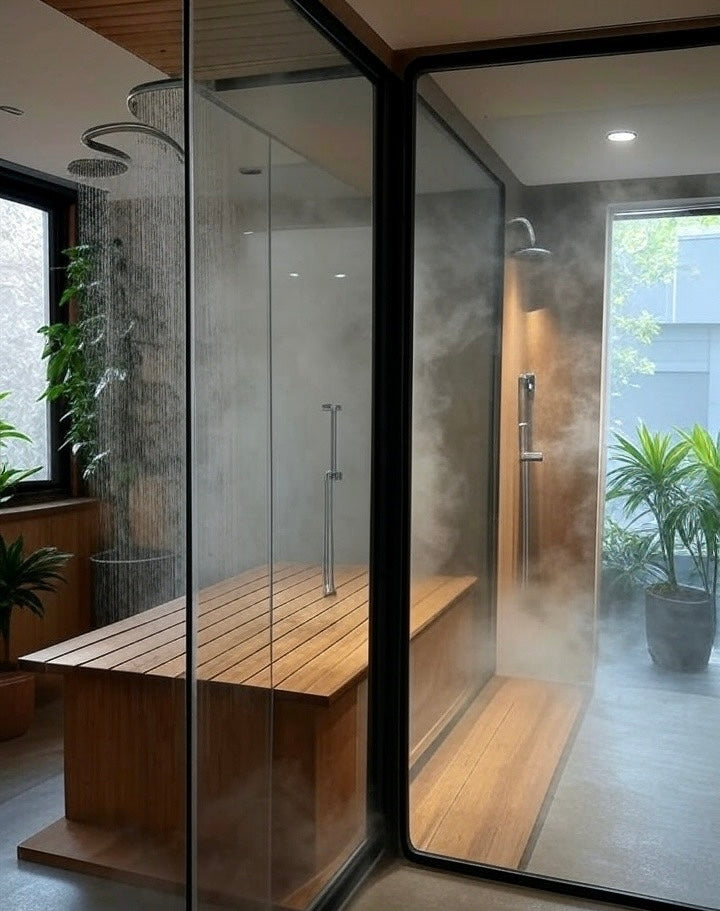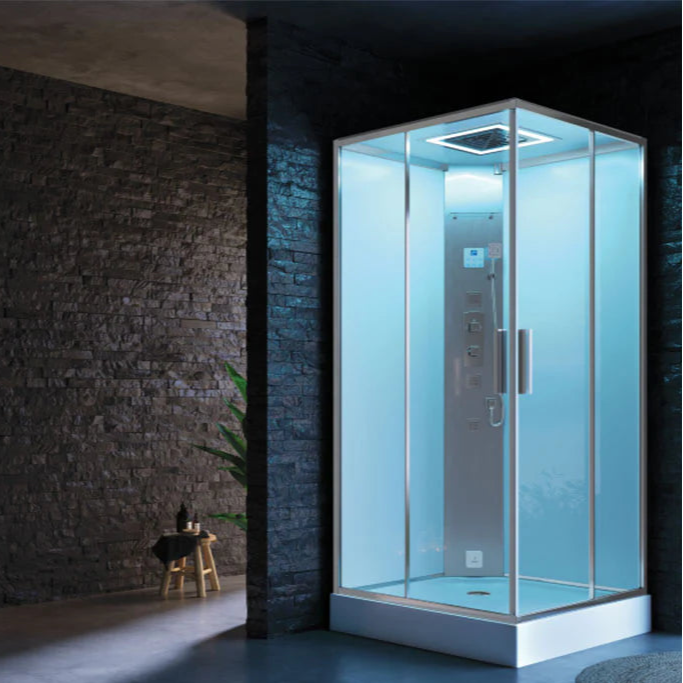Feeling low? A Sauna might just lift your spirits—seriously. Short answer: Yes, Infrared Sauna sessions can ease depression by boosting mood, reducing stress, and improving sleep. Whether it's a Home Sauna, Garden Sauna, or Outdoor Sauna, step in and discover how heat can help your head. Keep reading to see how.

Understanding Infrared Saunas and Depression
What is an Infrared Sauna and How Does it Differ from Traditional Saunas?
Unlike traditional saunas that warm the air, an Infrared Sauna uses invisible light to heat your body directly. This gentle warmth penetrates deeper into the skin, without making the surrounding air uncomfortably hot.
Infrared Sauna Therapy is known for producing a milder, more tolerable heat, allowing users to stay in longer without feeling overwhelmed. It’s often more accessible for people who find traditional saunas stifling.
Whether in a Home Sauna or an Outdoor Sauna, infrared offers a flexible and comfortable option for regular use.
Near, Mid, and Far Infrared: What's the Difference?
Infrared light comes in three wavelengths: near, mid, and far.
Each penetrates the skin at different depths, with near infrared reaching surface tissues, mid infrared supporting soft tissue, and far infrared going deepest to warm the body’s core.
Most modern infrared saunas combine all three, enhancing therapeutic effects and overall comfort.
The Science Behind Infrared Heat Penetration
Unlike hot air, infrared waves bypass the skin’s surface and warm the body from within.
This deep tissue heating increases core body temperature gently and can lead to changes in circulation, hormone levels, and inflammation.
These physiological shifts are believed to support both physical and mental health—especially when it comes to managing mood disorders.
The Growing Link: Infrared Saunas and Mental Well-being
Overview of Heat Therapy for Mood Regulation
Exposure to heat, especially via sauna use, has been linked to improved mental health outcomes.
It helps reduce stress, ease anxiety, and trigger the release of endorphins—your body’s natural feel-good chemicals.
The warming effect also promotes a sense of calm and relaxation, both mentally and physically.
Key Research and Studies on Infrared Sauna and Depression
Studies have shown that infrared sauna treatment for depression can be beneficial, particularly in individuals with major depressive disorder or chronic low mood.
One small clinical trial demonstrated that a single sauna session led to improvements in mood lasting for days. Other findings suggest infrared heat may mimic the effects of mild exercise on the brain.
Though more research is needed, the early data are promising.
How Infrared Sauna Therapy May Alleviate Depressive Symptoms

Physiological Mechanisms of Action
Impact on Stress Hormones (e.g., Cortisol Reduction)
Regular infrared sauna sessions have been found to reduce cortisol, the body’s primary stress hormone.
Lower cortisol levels can ease the body’s “fight-or-flight” state, supporting a calmer, more balanced mood.
This alone can be a game-changer for those struggling with anxiety or depression.
Boosting "Feel-Good" Neurotransmitters (Serotonin, Endorphins)
Sauna use triggers the release of endorphins and may enhance serotonin levels.
These neurotransmitters play a crucial role in mood regulation and emotional stability.
Many users report feeling an uplift in mood post-session—like a warm, relaxed glow that lingers.
Reducing Inflammation and Its Role in Depression
Chronic inflammation has been linked to depressive symptoms.
Infrared heat can help reduce markers of systemic inflammation, such as C-reactive protein (CRP).
Less inflammation means less burden on the body and brain, possibly easing symptoms of depression.
Enhancing Detoxification and Mental Clarity
Sweating through an infrared sauna may support detox by flushing out toxins.
While the detox debate continues, many users feel mentally clearer and more energised after a session.
This “mental reset” effect can be especially helpful for those feeling foggy or fatigued from depression.
Holistic Benefits Contributing to Improved Mood
Promoting Relaxation and Nervous System Regulation
Infrared heat stimulates the parasympathetic nervous system—the one responsible for rest and recovery.
This helps the body shift out of stress mode and into a relaxed state.
Regular sessions may reduce symptoms of anxiety, tension, and emotional overwhelm.
Improving Sleep Quality and Its Connection to Mental Health
Infrared sauna therapy can help regulate circadian rhythm and promote better sleep.
Improved sleep quality is closely tied to reduced depression symptoms.
Users often report deeper, more restful sleep following sauna sessions.
Mindfulness and Meditation Opportunities in the Sauna Environment
The quiet, enveloping warmth of a Garden Sauna or Home Sauna makes it a perfect space for mindfulness.
Many people use their sessions to practise breathwork, meditation, or gratitude exercises.
This can further support emotional resilience and mental clarity.
Potential Role of Chromotherapy and Sound Therapy
Some saunas include optional therapies like chromotherapy (colour light therapy) or calming sound systems.
These additions may enhance mood support by engaging the senses.
While not essential, they offer another layer of personalisation in your healing routine.
Practical Considerations and Recommendations
Getting Started: Session Guidelines
Recommended Session Duration and Frequency
For mental health support, aim for 3–4 sessions per week, lasting 15 to 30 minutes each.
Start slowly, especially if you’re new to sauna use.
Listen to your body and build tolerance gradually.
Hydration and Preparation Tips
Hydration is key—drink water before and after your session.
It’s also wise to avoid alcohol and heavy meals beforehand.
Wear light clothing or a towel, and have a cool-down space nearby.
Safety, Risks, and Who Should Consult a Doctor
Potential Side Effects and Contraindications
While generally safe, sauna use can lead to dizziness, dehydration, or low blood pressure.
It’s best avoided by individuals with certain heart conditions, recent stroke, or during pregnancy.
Always step out if you feel lightheaded or unwell.
Importance of Consulting a Healthcare Professional
If you’re managing clinical depression or taking medication, speak with your doctor first.
Infrared sauna for mental health is a supportive tool—not a replacement for professional care.
A tailored plan ensures your safety and effectiveness.
Choosing an Infrared Sauna
Factors to Consider (e.g., EMF levels, types of heaters, home vs. commercial use)
Look for low-EMF models with carbon or ceramic heaters for even heat.
Consider whether a Home Sauna, Garden Sauna, or Outdoor Sauna fits your lifestyle.
Smaller portable units may suit beginners, while larger units offer space for yoga or stretching.
Takeaways
-
Infrared saunas may help reduce depression symptoms through hormonal, neurological, and inflammatory pathways.
-
Benefits include reduced stress, better sleep, mental clarity, and increased endorphin release.
-
Regular use in a safe, comfortable environment—whether at home or in a spa—can complement other wellness practices.
-
Always stay hydrated and check with a healthcare provider before starting any new therapy.






